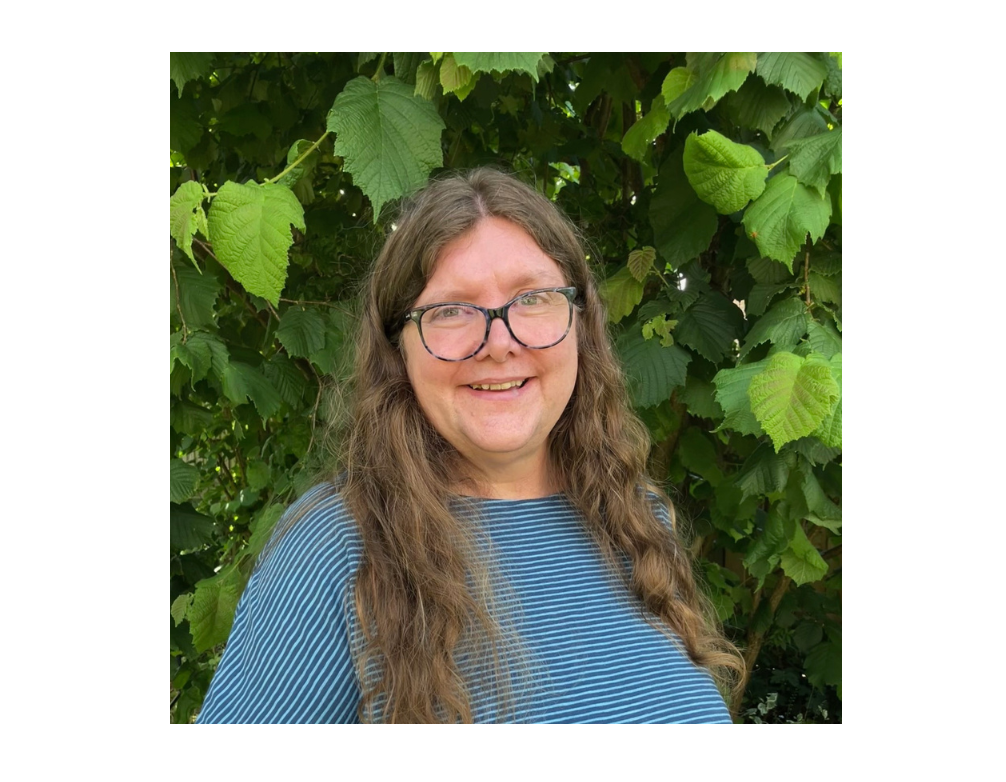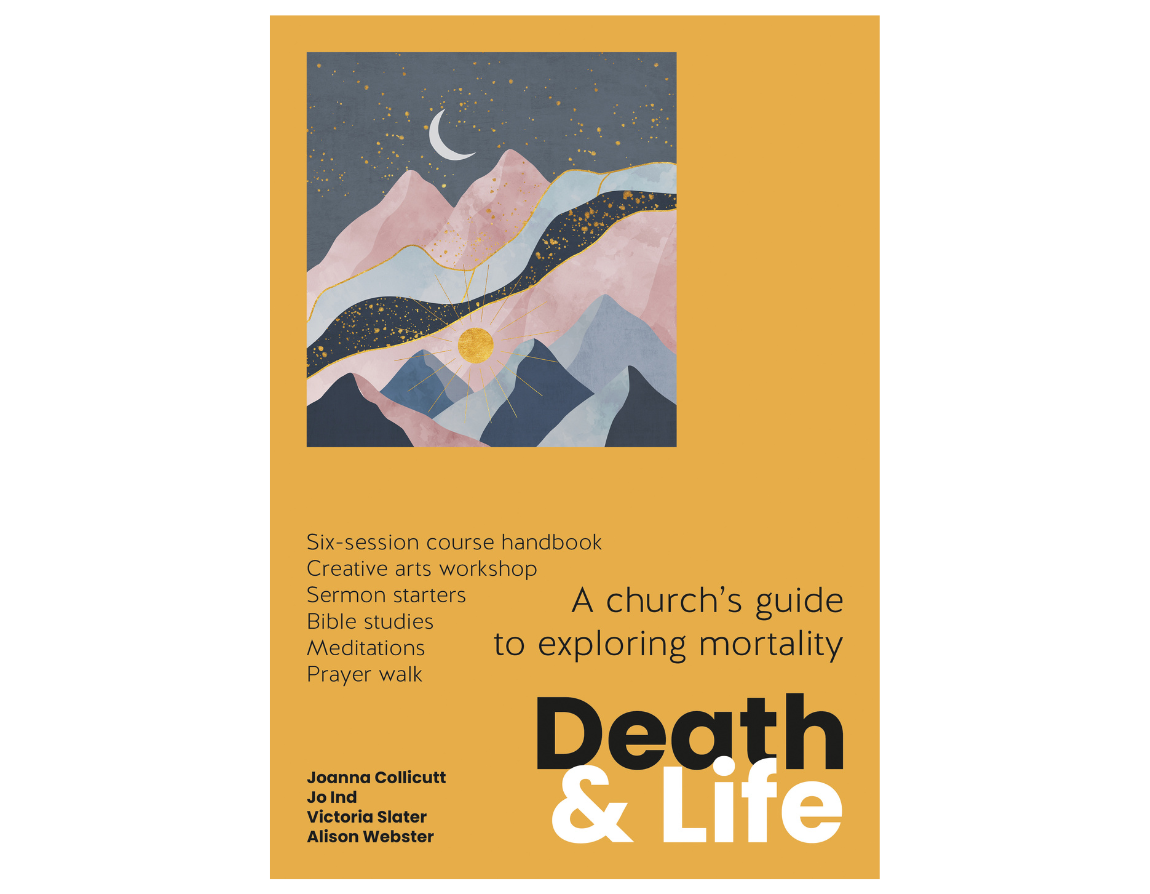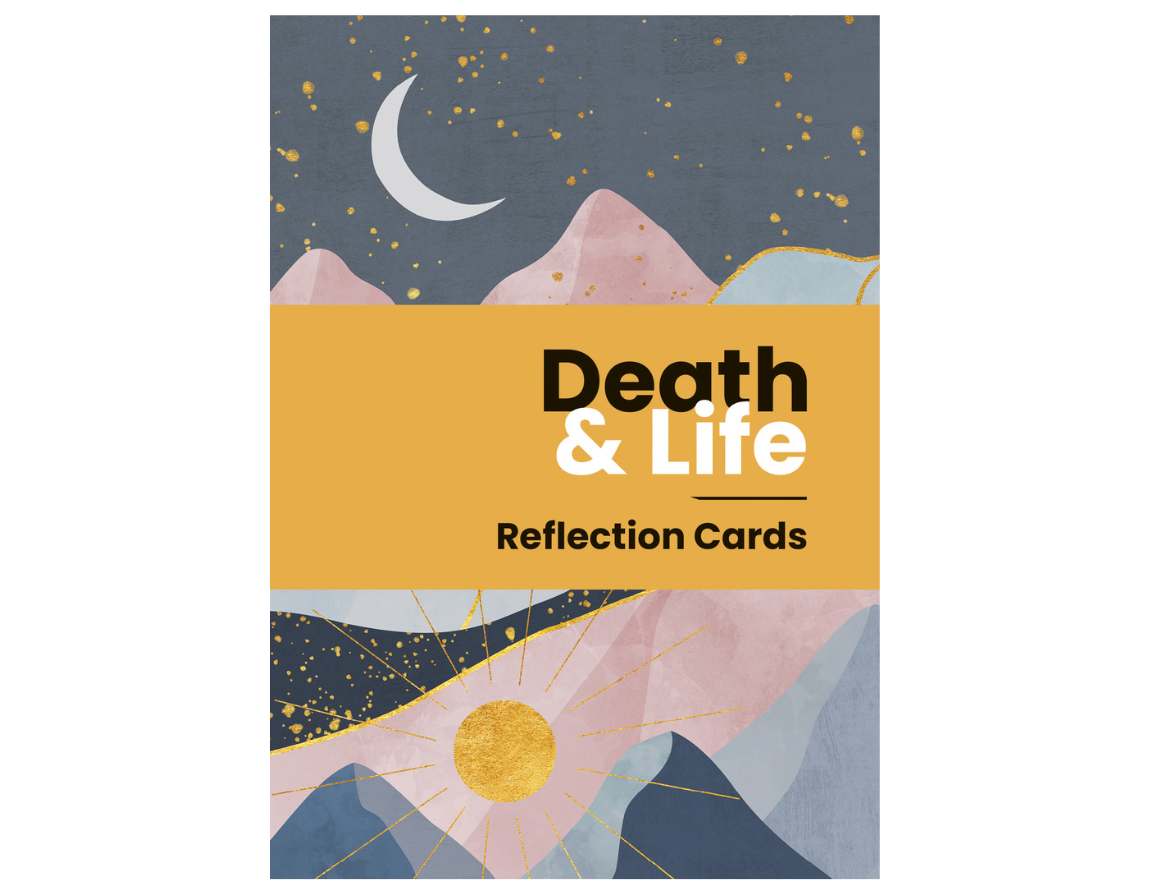Yesterday, 1 November, All Saints’ Day honoured all saints and martyrs. Today, 2 November, All Souls’ Day is dedicated to prayer for the souls of the faithful departed, including our own loved ones. Julia Burton-Jones offers an Anna Chaplaincy-inspired reflection on the importance of remembering those we have loved and those who have shaped our lives, and of helping others do the same.
2 November 2025
Chrysanthemums for La Toussaint
As the autumn colours appear and the days shorten, my mind often returns to Normandy, where I have spent many happy October breaks since my children were small (they are now 29 and 32 and both married). Something about autumn is highly evocative with its impact on the senses.
We are often in France over La Toussaint, All Saints’ Day, when florists overflow with chrysanthemums, the plants placed by French people on graves on 1 November. It seems a fitting way to honour the dead and remember the part they played in our lives.
In Anna Chaplaincy, we recognise the importance of All Souls as an annual day of prayer and remembrance. The older people alongside whom we serve have experienced numerous bereavements, and value space to remember both those who have died recently and others who are long departed. Services held in churches and care homes to remember the dead acknowledge the sadness of their absence while thanking God for their lives.
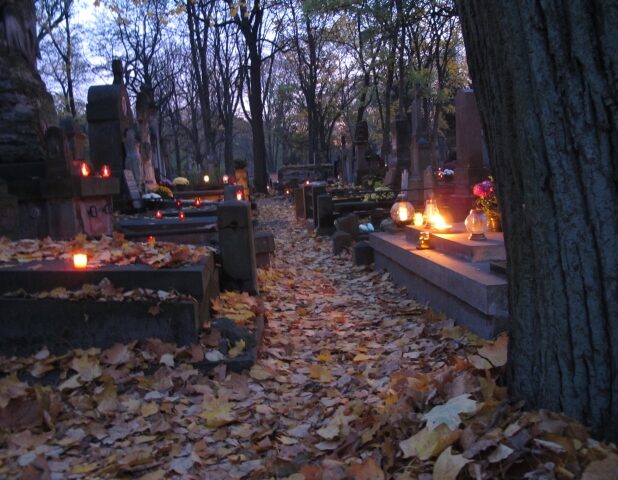
Remembering is not just for a season, for two weekends in autumn.
Remembering in care homes
In the care home context, this has been especially significant, as recent conversations with Anna Chaplains across the network have illustrated. Care homes vary in the extent to which they share the news a resident has died with the community. Imagine you have been good friends with another resident, perhaps sitting with them at meals, enjoying activities together, feeling a sense of connection and mutuality. Then one day they simply disappear and nothing is said. You wonder, are they ill and in hospital? Have they moved to another place? You miss them, but no one mentions their absence.
When Anna Chaplains raise this subject with care home staff, the response might be, ‘We don’t want to upset residents by telling them someone has died.’ But while this silence over a death is done for the best of reasons, it leaves older people with unacknowledged, unattended loss, wondering what will happen when they die? Will their parting be marked in any way? In not creating space to say goodbye to a member of the community, might this convey the message that they didn’t matter and are not missed?
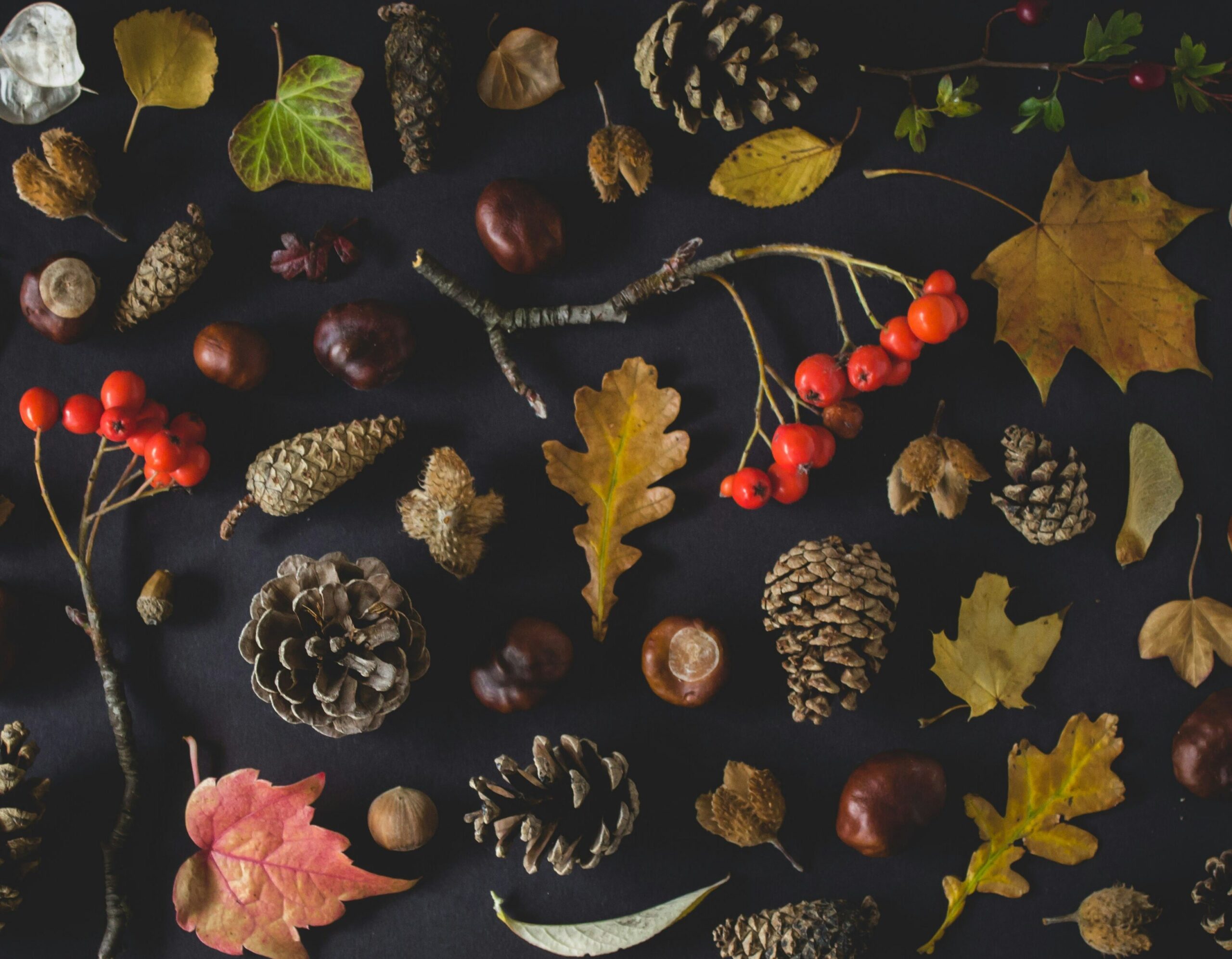
Anna Chaplains work with the senses by bringing into their ministry seasonal reminders of nature.
New rituals
Some care homes are more successful than others in finding sensitive ways to convey the news of a death, but where Anna Chaplains have been invited to be part of this process, it has led to new practices and rituals which are often highly valued by staff, residents and visitors. As a Kent Anna Chaplain said recently, residents in the homes in which she ministers have dealt with a great deal of loss over their lifetimes and have learned how to cope with death so, ‘We infantilise them by assuming they need to be protected from it.’ The services she has introduced to remember those who have died in the care home community and to give thanks for their lives have been greatly appreciated.
As care homes increasingly provide palliative care for older people, with shorter stays and admissions when residents are dying, spiritual care and chaplaincy play a key role. Anna Chaplains are frequently asked to say final prayers with residents who are nearing the end of their lives, sometimes also helping with the funeral, and offering ongoing bereavement support to relatives.

Imagine never feeling the breeze in your hair or the warm sunshine on your face. Being in the natural world enables you to feel more truly alive.
Not only for the residents
Anna Chaplains also recognise that staff can struggle when residents die, having grown close to them through providing care through their last illness. An important part of their role is to offer spiritual care, not just to older people, but to the paid and unpaid carers who support them, including care home teams.
Anna Chaplains also have a role to play in care homes when a member of staff has died. In another Kent town, the manager of the home died suddenly. When the team were thinking of ways to mark her death, it was suggested that the Anna Chaplain be approached to create and lead a short service in the home. The service meant a great deal, not only to bereaved colleagues, but also to residents and visitors.
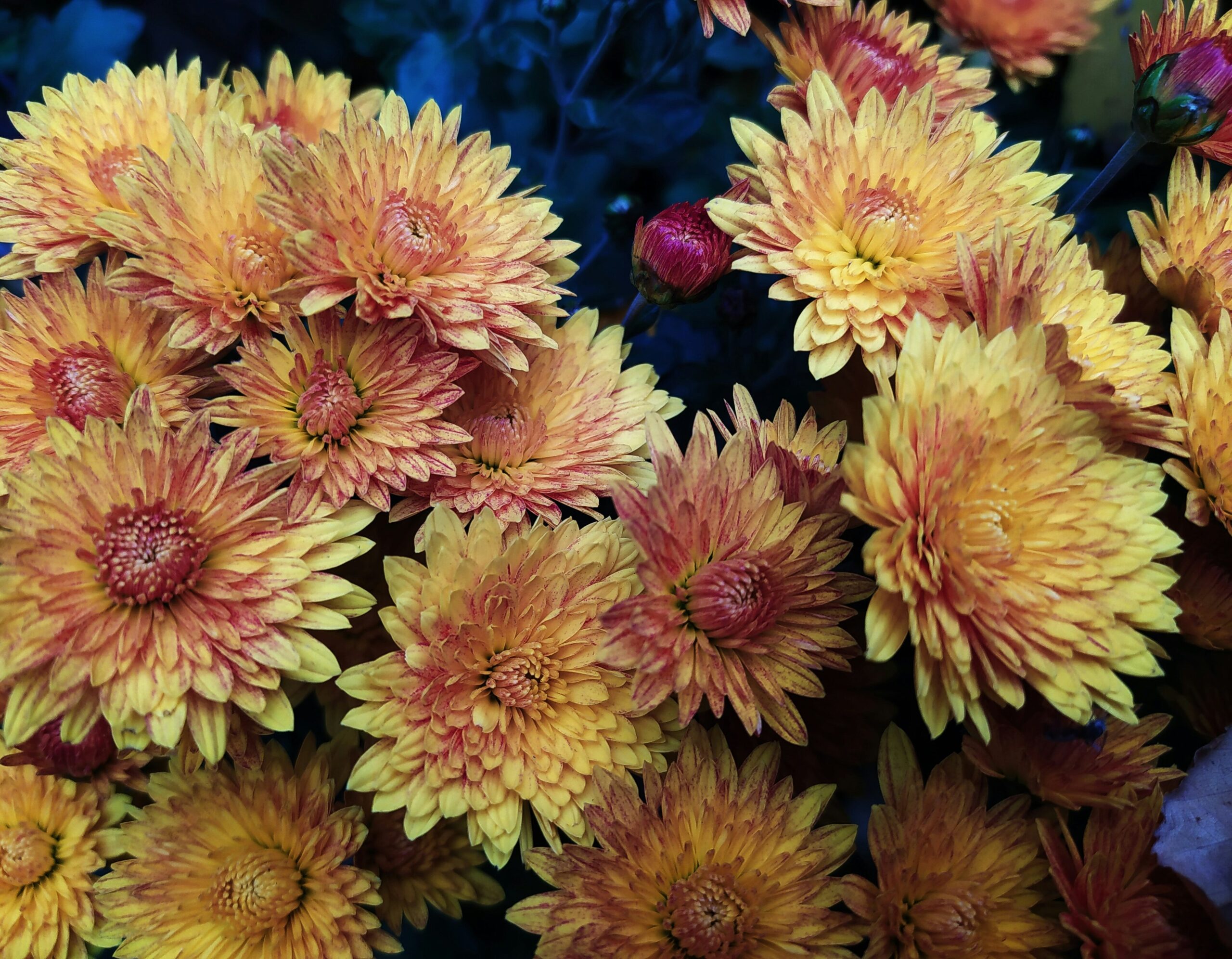
In all its wondrous variety of shapes and shades and its sensory appeal, the humble chrysanthemum enables a therapeutic connection with lost loved ones.
Working with the senses
Remembering is not just for a season, for two weekends in autumn. In accompanying older people, listening to their life stories frequently includes hearing about the people who have played a central role in those stories. Creating space in conversation for the older person to reflect as they share memories of these key individuals is a moving and mutually beneficial exercise.
The senses help unlock these important memories; it’s well-known that the sense of smell especially is strongly linked to memory. Which brings me back to my memories of Normandy and La Toussaint. The sights, smells and atmospheres of autumn are what transport me to France and remind me of happy times there with my family. Autumn is a sensory delight, but to be fully immersed in it we need to be outdoors. For frail older people, including those living in care homes, being in the open air can be a vanishingly rare experience, and so the seasons all merge into one.
Anna Chaplains work with the senses by bringing into their ministry seasonal reminders of nature – autumn leaves and conkers to use in the services and activities they hold in October, for example. Might we also be those who advocate for older people to spend more time outdoors? When we visit older people in care homes, could we suggest spending our time with them in the garden, if that is what the person would enjoy? I have noticed over many years of working with care homes that the conversations that happen in the garden are different from the ones that take place in the lounge; they are more meaningful and seem to enable the person to talk more freely about themselves and their lives. You could say these are more ‘spiritual conversations’.
Imagine never feeling the breeze in your hair or the warm sunshine on your face. Being in the natural world enables you to feel more truly alive. We were made by God to live as one with the rest of creation, and we see in it the image of the creator.
And so to the humble chrysanthemum, the French symbol of remembrance at La Toussaint. In all its wondrous variety of shapes and shades and its sensory appeal, it enables a respectful and therapeutic connection with lost loved ones and the divine presence where they are safely held. As I give thanks for rich memories this autumn, I thank the Lord for the moments when creation speaks to us of his faithfulness through life’s seasons of loss and limitation.

